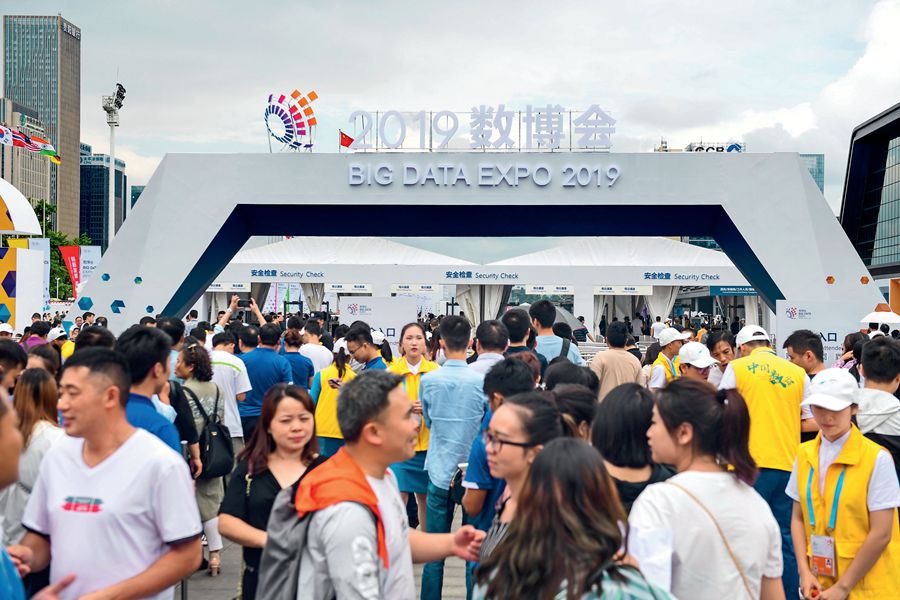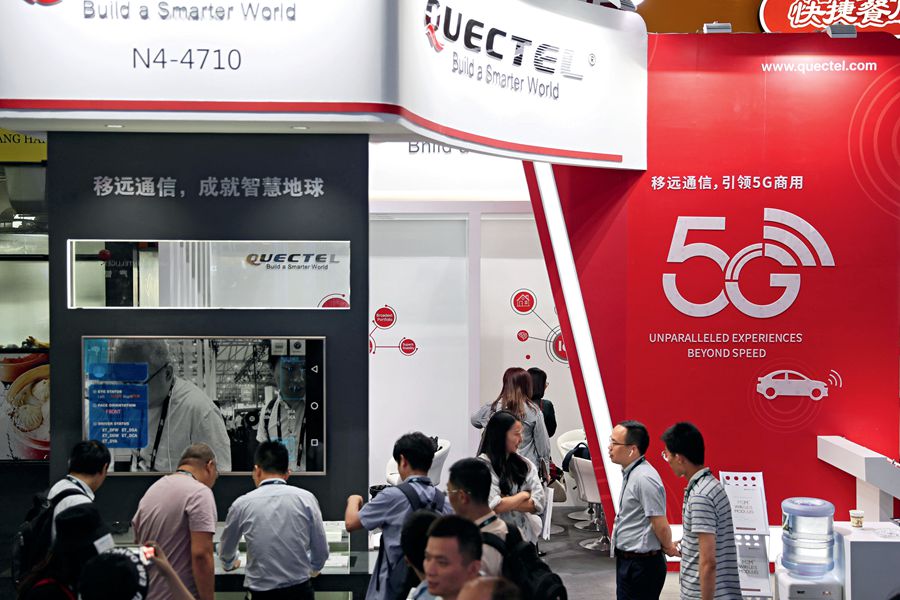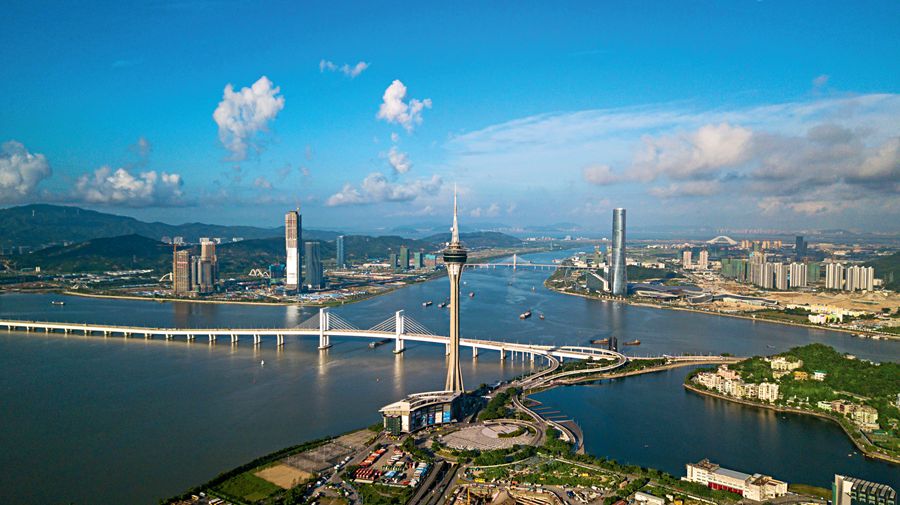THE Fourth Industrial Revolution has set off a wave of technological innovation. New technologies, such as artificial intelligence, virtual reality, quantum information technology, unmanned technology, and biotechnology, have sprung up at an unprecedented rate, injecting new impetus into the development of the world economy and bringing the global economy into a new era.
How to cope with the technological changes, economic disparities, global environmental challenges, and regional competition brought about by the Fourth Industrial Revolution as well as build a more inclusive and sustainable global cooperation system oriented toward science and technology was the focus at the Annual Meeting of the New Champions 2019, also known as the Summer Davos, held in Dalian early July.
Opportunities and Challenges Coexist
The technological innovation brought about by the Fourth Industrial Revolution has spurred on the transformation of production, mainly in two aspects. The first one is to promote the upgrading and integration of already established industries. The wide application of new technologies encourages the intelligent development of industries, and accelerates the structural upgrading and restructuring of global industrial chains. With the penetration and integration of new technologies in different industries, new industrial models are taking shape. Secondly, new industries are emerging. For example, the continuous development of artificial intelligence technology has created a new industry revolving around robotics. Research developments in lithium batteries and charging piles have catalyzed the rapid growth of the new energy industry.

The development of big data has attracted much attention. China International Big Data Industry Expo is held in Guiyang in 2019.
However, the Fourth Industrial Revolution is facing new challenges. At present, the world is witnessing rising protectionism and unilateralism, intensifying trade and investment disputes, a severely handicapped multilateral trading system, and mounting systematic risks and other global challenges. In 2019, many international institutions, such as the International Monetary Fund and the World Bank, lowered their global economic growth forecasts. The risks and uncertainties hovering around global economic development have increased significantly.
The Need to Unite All Sides
In January 2019, the theme of the annual meeting of the World Economic Forum in Davos, Switzerland was “Globalization 4.0: Shaping a Global Architecture in the Age of the Fourth Industrial Revolution.” Globalization 4.0, as a key word, has attracted wide attention from the international community. It refers to a new era of globalization in which geopolitical patterns are changing, new technologies are emerging, and the ecology is facing severe challenges.

On June 11, 2019, the Consumer Electronics Show Asia opens in Shanghai. This exhibition attracts more than 500 exhibitors from home and abroad to present the world’s top technology in the fields of 5G, artificial intelligence, augmented reality, and unmanned driving.
According to Klaus Schwab, founder and executive chairman of the World Economic Forum, “We are entering a new era of globalization, which we call Globalization 4.0. The Fourth Industrial Revolution will shape future global cooperation. At the annual meeting of the new leaders in Dalian, we will seek solutions that ensure that the future is people-oriented, inclusive, and sustainable.”
The Summer Davos, with the theme of “Leadership 4.0: Succeeding in a New Era of Globalization,” focused on the four topics of “Achieving Technical Leadership,” “Maintaining Economic Leadership,” “Promoting Responsible Leadership” and “Cultivating Flexible Industry Leadership.” Entrepreneurs’ seminars and professional sub-forums on investing in China, technology and trade, nurturing the labor force of the future, responsible data, the cost of climate change, Guangdong-Hong Kong-Macao Greater Bay Area, and the electric vehicle revolution were held to coalesce the wisdom of all parties for Globalization 4.0-oriented innovation and cooperation.
The era of Globalization 4.0 features closer economic ties among countries, notable interplay between industrial chains, more frequent trade and investment exchanges, and deeper integration of interests. Promoting Globalization 4.0 requires more extensive and high-quality international cooperation. Only win-win cooperation is the fundamental way to realize the interests of all countries.
As Chinese President Xi Jinping pointed out at the G20 Osaka Summit, it is an irresistible trend of the times for mankind to move from blockade to openness and from isolation to integration. All countries should embrace development opportunities with greater openness, seek mutual benefit and win-win results with better cooperation, and guide economic globalization toward the right direction, he said.
Promoting Globalization with High Quality Development and Openness
For a long time, China has been an active participant, promoter, and contributor to globalization. In the era of Globalization 4.0, China’s economy plays a more important role in promoting high-quality development of the world economy. Over the past 40 years, the average annual growth rate of China’s economy reached 9.5 percent. At present, China is the second largest economy in the world. According to statistics of the General Administration of Customs, China’s total trade volume hit a record high of US $4.62 trillion in 2018, and its trade scale continued to rank first in the world. Over the years, China’s economy has contributed more than 30 percent to global economic growth and has become the engine of world economic development.

As the frontier of reform and opening-up and an important engine of economic growth, Guangdong, Hong Kong, and Macao are the pioneer areas in champing a “Bay Area Economy.”
In recent years, China has launched a series of measures to promote a higher level of opening-up, creating opportunities for the economic development of various countries. At the annual meeting of the Boao Forum for Asia in April 2018, President Xi Jinping announced four measures, which included greatly relaxing market access, creating a more attractive investment environment, strengthening intellectual property protection, and expanding imports.
At the first China International Import Expo in November 2018, President Xi Jinping announced five measures to expand opening-up: stimulating import potential, continuously relaxing market access, creating an international first-class business environment, creating new opening-up areas, and promoting in-depth development of multilateral and bilateral cooperation.
In April 2019, at the second Belt and Road Forum for International Cooperation, President Xi Jinping proposed a series of institutional and structural arrangements, such as expanding market access for foreign investment to a wider range of areas, strengthening international cooperation in intellectual property protection, increasing imports of goods and services on a larger scale, more effective implementation of international macroeconomic policy coordination, and higher level of opening-up.
At the G20 Osaka Summit on June 28, President Xi Jinping announced that China would further open its market, take the initiative to expand imports, continuously improve the business environment, fully implement equal treatment for domestic and foreign enterprises, and promote economic and trade negotiations.
These important reform and opening-up measures are China’s real contribution to promoting globalization and high-quality development of the world economy. Recently, China issued a shorter negative list for market. It also announced its intentions to abolish restrictions beyond the negative. In November 2019, China will hold the second China International Import Expo, which will provide a broad market for goods and services of all countries in the world. In January of next year, the new foreign investment law will take effect to improve protection on intellectual property. As a responsible big country, China will, as always, expand its opening-up, and work with other countries for win-win results to build a community of a shared future for mankind.
GENG NAN is associate research fellow of Chinese Academy of International Trade and Economic Cooperation, Ministry of Commerce.


